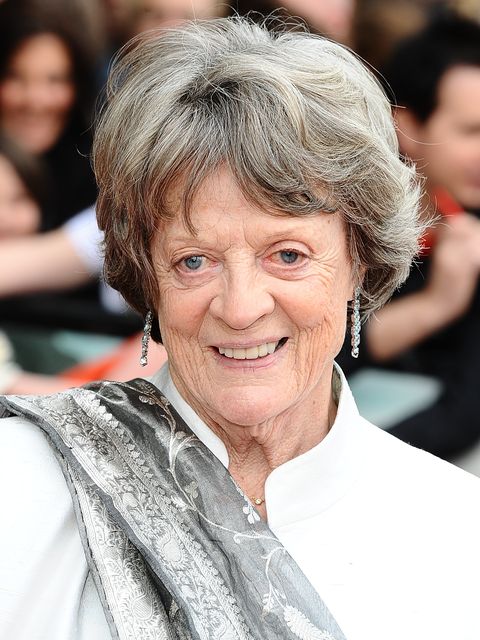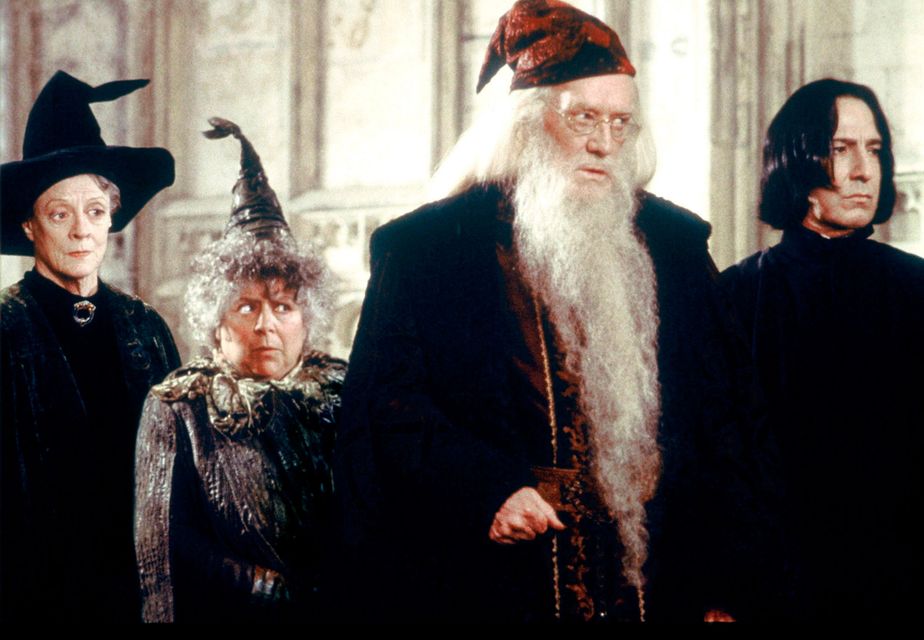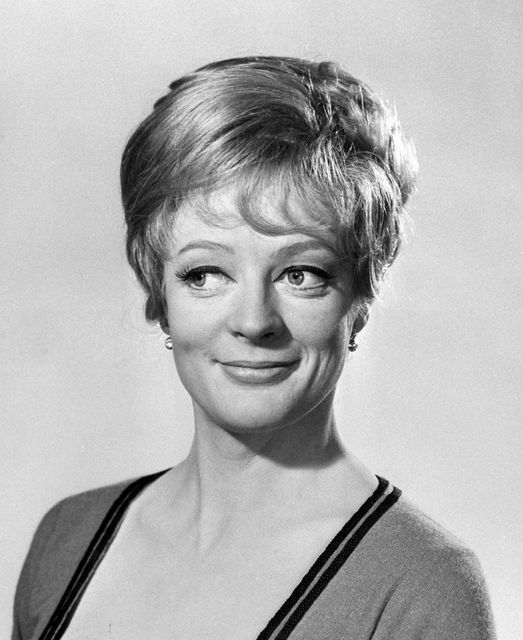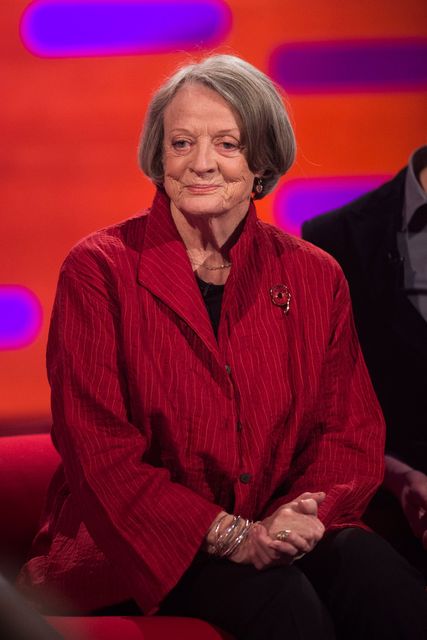Popular with audiences for more than 60 years, Smith gave life to a host of memorable characters, from Muriel Spark’s passionate Edinburgh girls’ school teacher Jean Brodie, in The Prime of Miss Jean Brodie, to Professor Minerva McGonagall in the Harry Potter series and Violet Crawley in ITV drama Downton Abbey.
Her other film hits include the Sister Act franchise and Steven Spielberg’s Hook.
Maggie Smith has died at the age of 89. Photo: PA
A statement from her sons Toby Stephens and Chris Larkin said: “It is with great sadness we have to announce the death of Dame Maggie Smith.
“She passed away peacefully in hospital early this morning. An intensely private person, she was with friends and family at the end. She leaves two sons and five loving grandchildren who are devastated by the loss of their extraordinary mother and grandmother.
“We would like to take this opportunity to thank the wonderful staff at the Chelsea and Westminster Hospital for their care and unstinting kindness during her final days.
“We thank you for all your kind messages and support and ask that you respect our privacy at this time.”
Over her career, Smith worked with theatrical greats including Laurence Olivier, John Gielgud, Alan Bennett and Judi Dench, while maintaining a prolific film and television presence from the 1960s onwards.
From left, Maggie Smith, Miriam Margolyes, Richard Harris and Alan Rickman in ‘Harry Potter and the Chamber of Secrets’. Photo: PA
The actor was born Margaret Natalie Smith on December 28, 1934 in Ilford, Essex. She was the youngest child of Nathaniel Smith, a pathologist and laboratory technician from Newcastle upon Tyne, and Margaret Hutton, a Glaswegian secretary, who had fallen in love after meeting on a train to London.
The family relocated to Oxford when their daughter was four. She soon won a scholarship to Oxford High School and, despite a frustrating failure to win parts in school plays – because she was considered “too common”, Smith later alleged – quickly resolved to become an actress, just as her elder twin brothers Alistair and Ian had decided equally emphatically to dedicate themselves to careers in architecture.
In 1952, when she was 17, she took a job as an assistant stage manager at the Oxford Playhouse, which she later complained had amounted to little more than “making endless cups of tea and playing maids”, but which had also seen her make her debut as Viola in Twelfth Night before appearing in such plays as Cinderella, Rookery Nook, Housemaster, W Somerset Maugham’s Cakes and Ale and The Letter, and Nikolai Gogol’s The Government Inspector.
In 1956, she went to New York City to make her Broadway debut, playing several parts in the revue New Faces of ’56 at the Ethel Barrymore Theatre before returning to London the following year to star in the musical comedy Share My Lettuce.
Maggie Smith pictured in 1966. Photo: PA
Here she played opposite Kenneth Williams, who would remain a lifelong friend with whom she would appear again, to award-winning effect, in the Peter Shaffer two-parter The Private Ear and the Public Eye at The Globe in 1962.
“She is so singular, a unique actress,” Williams would later say of his co-star, praising her hard work in rehearsals and remembering with particular relish a sketch in which she had played a hostess encouraging her guests to join in a round of party games while artfully swinging a string of beads around her neck and midriff and back again without losing them, a trick only mastered through hours of practice.
Her real stage breakthrough arrived that same year when she was invited by Olivier to join his company at the National Theatre, having been impressed after seeing her in William Congreve’s The Double-Dealer at The Old Vic, where she had also completed a trio of Shakespeare plays.
She stayed there for eight years, enjoying a remarkable run from 1963 to 1965 in particular when she starred in George Farquhar’s The Recruiting Officer, played Desdemona in Othello and appeared in Henrik Ibsen’s Master Builder, Noel Coward’s Hay Fever and Much Ado About Nothing.
However, her relationship with Olivier was often tense and in danger of boiling over into outright rivalry. She later revealed that he had once slapped her in a rehearsal for Othello and criticised her diction, to which she pointedly replied in perfectly crisp vowels, having waited until he was in make-up to play the Moor: “How now, brown cow?”
Nevertheless, the 1965 film version, which gave screen debuts to Michael Gambon and Derek Jacobi, secured Oscar nominations for both of its stars.
Smith married fellow actor Robert Stephens on June 29, 1967, with whom she went on to have two sons: Chris Larkin (born 1967) and Toby Stephens (1969). They too would grow up to join the family business.
The couple separated but Smith quickly remarried, to the playwright Beverley Cross, on June 23, 1975. The pair moved to Canada, collaborating on a string of productions at Ontario’s Stratford Shakespeare Festival (1976-80) and remained together until his death in 1998.
Maggie Smith was renowned for her stage and film work. Photo: PA
In 2010 she was central to the success of ITV series Downton Abbey, in her Emmy-award winning role as the acerbic Violet Crawley, Dowager Countess of Grantham, which she continued to play in the films.
Asked by chat show host Graham Norton whether she was glad the series was coming to an end in 2015, Smith answered, without a moment’s hesitation: “Oh yeah! No, I really am. Honestly, by the time we finished she must have been 110 so I couldn’t go on and on!”
Asked whether she had ever actually seen an episode of Downton, she replied, rather more guiltily: “I’ve got the box set…”
A giant of theatre and a deft character player on film, extremely committed and rarely out of work, Smith was nevertheless something of a perennial outsider, despite the adulation she received throughout her career, having acquired a reputation as rather spiky and acid-tongued, disinclined to suffer fools gladly.
On whether she had ever felt inclined to try to correct this perception, she told an audience at London’s Tricycle Theatre in March 2017: “It’s gone too far now to take back. If I suddenly came on like Pollyanna, it wouldn’t work – it would frighten people more if I were nice. They’d be paralysed with fear. And wonder what I was up to. But perhaps I should try it… ‘Hello! What fun! We’re going to be here all day! And then filming all night too! Goodie! And it’s so lovely and cold!’”







